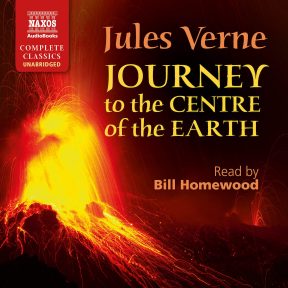The NAB Blog
A Matter of Translation
By Anthony Anderson
23 March 2017
 Frequently at Naxos AudioBooks we record great works of literature from non-Anglophone countries, in English translation. There is a ready market for these, whether it be the towering (in several senses of the word) novels of the nineteenth-century Russian Masters, Dostoyevsky and Tolstoy, or those of their French counterparts, Hugo and Zola.
Frequently at Naxos AudioBooks we record great works of literature from non-Anglophone countries, in English translation. There is a ready market for these, whether it be the towering (in several senses of the word) novels of the nineteenth-century Russian Masters, Dostoyevsky and Tolstoy, or those of their French counterparts, Hugo and Zola.
One of the issues that comes up quite early in the process is which translation we should use, and there are a number of factors which we have to consider. The first is that of copyright. There are two implications here – the first is that with an in-copyright translation the rights holder has, quite rightly, to be paid. The second is that it might be that another publisher has already acquired exclusive audiobook rights to a particular translation, meaning it is, temporarily at least, unavailable to any other audiobook publisher. The overriding principle, however, is that the translation lends a clarity and comprehension to the actual narrative, helpful to the actor when assailing these great masterpieces, but more important for the listener so that the narrative thread can be sustained in a seamless fashion. While our recordings may educate, they are designed, above all, to entertain!
This month sees the release of two non-English classics: the first, Jules Verne’s Journey to the Centre of the Earth, and the second, Dostoyevsky’s The Idiot. We have previously issued unabridged recordings of two of Dostoyevsky’s great novels – Crime and Punishment and The Brothers Karamazov both in translations by Constance Garnett. A prolific translator (she translated over seventy Russian works into English, including many by Tolstoy, Chekhov, Turgenev and, of course, Dostoyevsky), she lived from the mid-nineteenth to mid-twentieth centuries. While we initially feared that the language she deployed might be too outmoded for the easy understanding of a modern listener, this is really not the case. One example from towards the end of The Idiot:
Myshkin jumped up from the chair in new terror. When Rogozhin was quiet (and he suddenly ceased), Myshkin bent softly over him, sat beside him and with his heart beating violently and his breath coming in gasps, he began looking at him. Rogozhin did not turn his head towards him and seemed indeed to have forgotten him. Myshkin looked and waited; time was passing, it began to get light. From time to time Rogozhin began suddenly and incoherently muttering in a loud harsh voice, he began shouting and laughing. Then Myshkin stretched out his trembling hand to him and softly touched his head, his hair, stroking them and stroking his cheeks . . . he could do nothing else!
While our recordings may educate, they are designed, above all, to entertain!
Nothing to bemuse the modern listener there – especially when the words come from the mouth of our reader Constantine Gregory. A Russian speaker (his mother was Russian), the numerous Russian names present little difficulty for him and his voicing of the many characters in the novel is sublime, as has been noted by the many positive customer reviews of his recordings.
The issue of translation does not just apply to nineteenth-century fiction, but also to much older works. Most obviously there are the classics – Greek or Latin – but also many older works from British writers – such as The Confessions of Saint Augustine – which were originally written in Latin. When preparing our translation of Herodotus (a personal favourite), we used the Rawlinson translation as a basis, but I then updated the more archaic language – again, aiming to facilitate the understanding of a twenty-first-century listener.
And then there is Middle English – while that can be a curiosity corner for people (Richard Bebb did read three of the Canterbury Tales for us in Middle English) – most of us would have difficulty following such a reading, particularly for any length of time. Therefore, for our longer Canterbury Tales recording we used modern English, as indeed we did for our versions of Beowulf and Sir Gawain and the Green Knight.
Most of all it is wonderful to be able to bring these classics of world literature to life. Listening to these texts, albeit through translation, only serves to broaden our horizons, giving us a window into other places, times and cultures.
« Previous entry • Latest Entry • The NAB Blog Archive • Next entry »